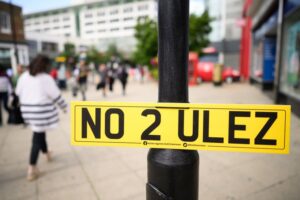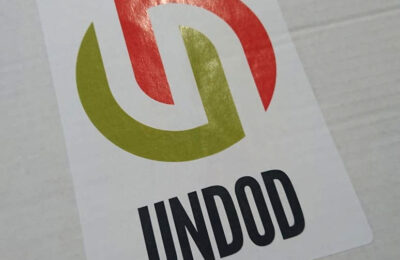From Open Democracy
“Just as there is a block of anti-ULEZ people capable of being mobilised by the Tories, there is a group of pro-ULEZ people that Labour could have mobilised had they tried. But instead, the party’s candidate came out against the scheme, Starmer sat on the fence, and the potential Labour voters sat at home.”
Both Labour and the Tories blame Sadiq Khan’s anti-pollution strategy. But are they right about what voters want?

In the hours since Labour failed to take Uxbridge and South Ruislip from the Tories in Thursday’s by-election, the talking point from both parties has been near-identical: the expansion by Sadiq Khan of London’s Ultra Low Emissions Zone (ULEZ) into the outer boroughs is to blame.
What’s certainly true is that the Tory campaign focused heavily on opposition to the proposal. Leaflets framed the now MP Steve Tuckwell not as a Conservative, but as the “anti-ULEZ candidate”. More than one voter told openDemocracy in the run-up to the vote that they were only bothering to show up so they could register opposition to the scheme.
ULEZ, of course, was originally announced by then-mayor Boris Johnson, although it was eventually introduced in central London by his successor Sadiq Khan. Under the policy, drivers of vehicles that breach certain pollution limits – less than 6% of inner London’s daily traffic, rising to 15% of vans – are charged £12.50 each time they drive in the designated area. Amid overwhelming evidence both of the success of the scheme, and that air pollution levels breach World Health Organisation guidelines right across Greater London, Khan plans to expand the rules to the rest of the capital next month. Polls consistently show a majority of Londoners support the measure – and even that the more car-dependent outer boroughs are evenly split on it – but there has been vocal opposition from the car lobby, and tabloid culture warriors.
openDemocracy understands that senior advisers to Keir Starmer are furious about this life-saving policy, and that Khan was banned from visiting Uxbridge in the run-up to the vote. Danny Beales, the Labour candidate, spoke out against the measure.
In reality, almost all of the data – and the evidence of the by-election itself – suggests that Khan is right to push ahead. Here’s why.
What happened in Uxbridge
Labour hasn’t won Uxbridge since 1966, but the broad phenomenon of millennials moving to outer London boroughs, combined with the general collapse in the Tory vote, led some in the party to hope they could overturn a Tory lead of 15% in 2019. Indeed, local polling before the vote showed they would.
To understand why they failed – and what ULEZ has to do with it – we need to start by looking at the results in a little detail.
The media tends to report the ‘swing’ in a by-election, because it sounds dramatic. But this is often deceptive, leaving us with the impression that thousands of people who previously voted for one party have changed their minds, and backed another.
While, of course, people do sometimes switch, the more common phenomenon is that turnout falls. That means the primary goal for any party is simply to persuade its usual voters to show up.
In Selby, despite an enormous percentage swing, Labour’s actual number of votes only increased modestly – from just under 14,000 to around 16,500. Some, if not all, of those votes may have come from Lib Dems, whose vote fell by more than Labour’s rose (whether tactically or otherwise). On the other hand, only a third of those who backed the Tories in 2019 appear to have voted Tory this time.
In Somerton and Frome, where the Tories lost to the Lib Dems, little more than a quarter of 2019 Tory voters bothered to turn out. Again, their opponents won the seat simply by turning out their own vote, and perhaps winning tactical backing from Labour people. The combined Lib Dem and Labour vote in 2019 was 25,000, and the Tory candidate won. Yesterday, it was 22,000, and the Lib Dems won.
Which brings us to Uxbridge and South Ruislip, and by extension ULEZ. 48,000 people voted there in 2019. This time, that fell to 31,000. The Tory vote fell from 25,000 to just under 14,000 – meaning around 55% of 2019 Tory voters showed up. But the Labour vote also fell, from about 18,000 to around 13,500. Had Labour managed to turn out its 2019 vote – as it did in Selby and Ainsty – it would have won. And had the Tory vote collapsed as much as it did in the other two seats, Labour would have won.
So why did these things not happen?
The thing that was emblazoned across every Tory leaflet – ULEZ – is clearly a factor. And it’s certainly true that some of the people I spoke to on a trip to the area last week mentioned it.
But all that tells us – as Russell Warfield, a campaigner with the environmental group Possible says – is that there is a “hardened rump” of Conservative, anti-ULEZ, pro-car voters in the outer-London boroughs. And we already knew that: polling shows that, while a majority of Londoners back ULEZ expansion, most Tories oppose it.
Specific polling in a group of London boroughs where councils are taking legal action against Sadiq Khan over the scheme – including Hillingdon, which overlaps with Uxbridge and South Ruislip – found a majority of people in these areas who are deeply concerned about air pollution.
Just as there is a block of anti-ULEZ people capable of being mobilised by the Tories, there is a group of pro-ULEZ people that Labour could have mobilised had they tried. But instead, the party’s candidate came out against the scheme, Starmer sat on the fence, and the potential Labour voters sat at home.
Nationally, Tories in the media have claimed that their opposition is to the detail or timing of the ULEZ expansion (for which, incidentally, the Conservative Party is partly responsible). Party chair Greg Hands told BBC Radio 4’s Today Programme that Khan’s expansion of ULEZ was too quick and that the Tories’ own plan to ban the sale of petrol cars by 2030 was more proportionate. But local leaflets made no such distinction, or any attempt to engage in the detail of the scheme, merely repeating the ‘Stop ULEZ’ slogan almost endlessly.
According to TfL’s own research, just 10% of cars being driven in outer London are not currently ULEZ-compliant. It’s possible this message didn’t filter through to voters, a much larger 45% of whom voted for the Tories’ anti-ULEZ candidate.
Timing
There are two more reasons why Labour’s equivocation on the issue may prove to be a mistake.
Firstly, voters hate few things more than politicians who look like they’ll say anything to get elected. Where the Tories had a clear position and hammered it in all of their communications, successfully turning out a big enough chunk of their vote base, Labour looked like unprincipled opportunists, willing to throw their own mayor under a 1990s Range Rover rather than take a principled stance or make a case for a policy that will benefit most people.
And secondly, it’s plausible that people will come to support ULEZ after it’s been implemented. Most people opposed London’s congestion charge in the weeks leading up to its implementation. Now, support is overwhelmingly high.
Transport expert professor Philip Goodwin looked at public attitudes to traffic reduction measures around the world, and found they tend to follow a very similar pattern – with generally high support dropping immediately before it’s implemented as people panic about details, only to rally once it’s in place.
ULEZ expansion is due to take place next month, meaning the by-election happened at the lowest ebb of this curve. Starmer could have positioned himself as someone who took a principled stance for something that then turned out to be – as it almost certainly will – popular.
The ULEZ scheme has been in place in central London since 2019. The results have been impressive – one study, for example, has associated the measure and similar ones like it in other cities with a reduction in heart disease. A study in Japan showed that introduction of a similar scheme was associated with an 11% reduction in cardiovascular deaths.
Ultimately, the lesson from Uxbridge isn’t that Labour is wrong to introduce moderate, sensible health measures like ULEZ. It is that the Tories and their outriders in the right-wing press can whip any policy to make lives better into a culture war. And if Labour is too cowardly to argue for its own, good policies, then it will give those who support them no reason to show up and vote.
And if Starmer isn’t brave enough to argue for something as boring and sensible as a mild measure to reduce the number of people dying of heart attacks, strokes, cancer and asthma – a measure that most people support – can you blame people if they can’t be bothered to show up for him?
Perhaps most profoundly, if Keir Starmer is so weak that he abandons support for gentle environmental measures already being introduced by his own party as a result of a small amount of pressure from a few fringe Tories, do we really think he’s got the leadership skills to be a successful prime minister in the era of climate crisis?


